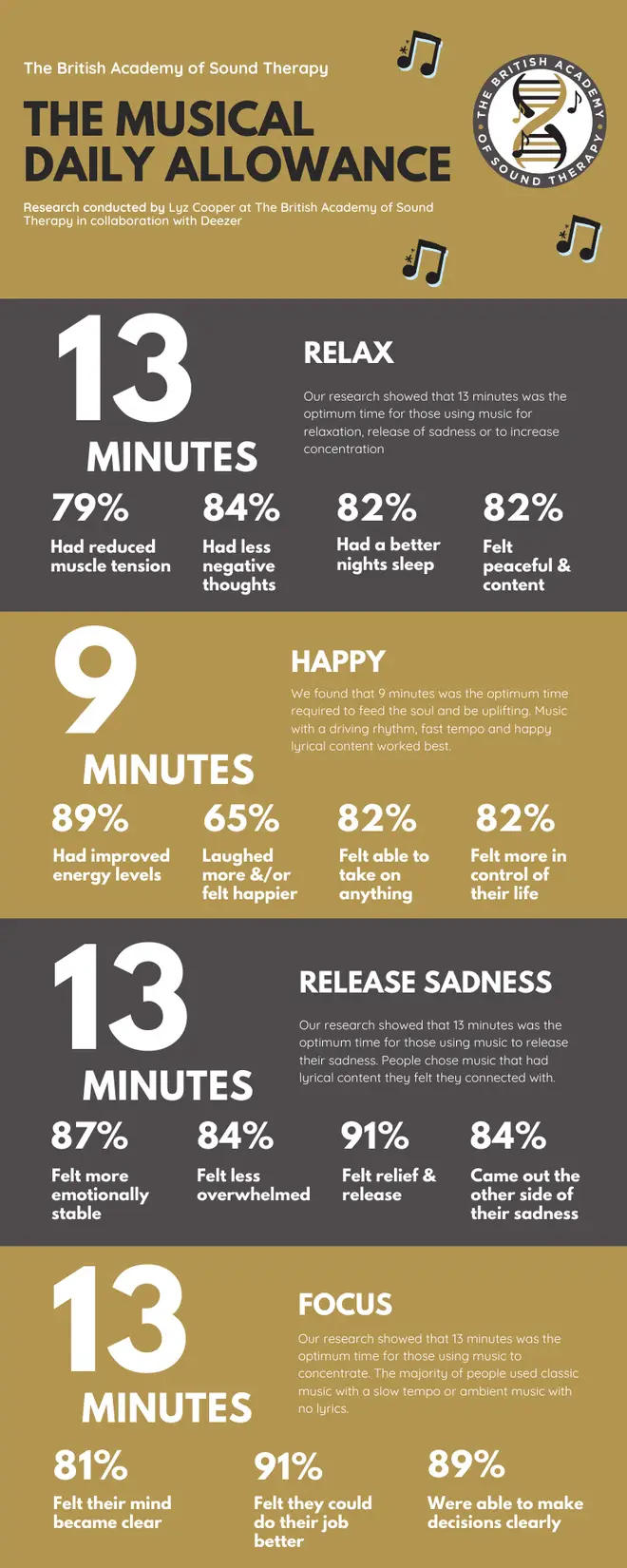On Air Now
Calm Classics with Ritula Shah 10pm - 1am
18 September 2023, 16:08

New research proves that music heals and suggests that in the future, music could be prescribed to help us focus, feel happier, relax and overcome sadness.
Research from the British Academy of Sound Therapy (BAST) has shown there is a common dosage for music and revealed how long an individual needs to listen to it for a therapeutic effect to be experienced.
In recent years, psychologists have proven that music can have a positive effect on our health, so researchers at BAST were keen to discover whether it would be possible to prescribe music to help us with specific mood states.
Their study, Music as Medicine, tested 7,581 participants and found that 89 percent believed music to be essential for their health and wellbeing, so there’s no doubt that it plays an important part in our daily lives.
While 90.15 percent participants used music to relax, 81.80 percent used it to make them feel happy, 46.5 percent to process and/or release sadness, and 32.53 percent to aid concentration.
The best music for relaxation had a slow tempo, simple melody and no lyrics, with an optimum listening time of 13 minutes – and many benefits were reported, including ‘decreased muscle tension, negative thoughts disappearing, feeling peaceful and contented and being able to sleep better’.
Read more: Dr Alex George presents new Classic FM series on classical music and positivity
Meanwhile, only nine minutes of music (mostly songs with a driving rhythm, fast tempo and positive lyrical content) is required to make people feel uplifted.
An impressive 89 percent had improved energy levels, 65 percent laughed more and others felt more in control of their lives or able to ‘take on anything’ – an encouraging result for medical professionals looking for new ways to treat patients with mental health conditions, such as anxiety and depression.
Read more: The best relaxing classical music
In another study, high-tempo music was also found to enhance performance during exercise – when women training heard pop songs with over 170 beats per minute, scientists found they began to put in more effort, particularly during endurance activities, such as running or cycling.
Music was also found to aid focus. Of the BAST test subjects who used music for concentration, 13 minutes was enough to clear their mind, help them work better in their job (91 percent) and make decisions more clearly.
And finally, music containing lyrics that people could connect with (again, 13 minutes) was found to be best for sadness, causing listeners to feel a sense of relief, less overwhelmed, more stable and less likely to be triggered by an issue.

Lyz Cooper, the founder of BAST, has previously collaborated with ambient musical trio, Marconi Union, to produce an eight-minute track designed to relax the listener and induce a trance-like state.
Cooper explained that the track, titled ‘Weightless’, “contains a sustaining rhythm that starts at 60 beats per minute and gradually slows to around 50’, meaning the listener’s heartbeat will naturally slow down to match the track’s BPM (beats per minute).
BAST’s fascinating new study, and Marconi Union’s soothing track, are further proof that music does indeed heal.